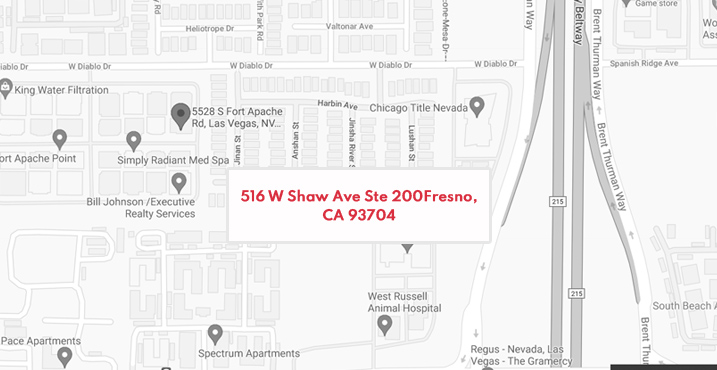Today, those with special needs and disabilities can enjoy long, enriching lives. But managing the complexities of their long-term personal support and finances can amount to a second job—and the rules may change at any time. If you manage the care of a child or relative, do you know who will help them in the future?
Disabled people often rely on public assistance, which comes with income caps and other conditions to meet. Even relatively affluent families could not meet the expense of many long-term care needs without that assistance. If you or your loved one has a disability, how will you secure assets for the future without endangering benefit eligibility?
Disability and Benefits in California
In the US, those with long-term disabilities are often eligible for SSI (Supplemental Security Income), which is available to the blind, disabled, and those over 65. California provides an additional SSP (State Supplemental Payment) to SSI recipients. Qualifying recipients can also rely on Medi-Cal, the state’s Medicaid program. However, all these programs require applicants to meet specific criteria.
Adult SSI recipients must meet the federal definition of disability: unable to engage in “any substantial gainful activity by reason of any medically determinable physical or mental impairment which can be expected to result in death or which has lasted or can be expected to last for a continuous period of not less than 12 months.” 20 CFR § 416.905. Minors under age 18 must have a “medically determinable physical or mental impairment or combination of impairments that causes marked and severe functional limitations,” lasting for the same period. See § 416.906. There are separate requirements for vision levels in blind applicants.
At this writing, SSI applicants in California do not qualify if they have more than $2,000 in assets if single or $3,000 if married. SSI recipients must also meet income caps, calculated according to their situation. For children living with their parents, the government looks at the family’s income to determine eligibility, considering the number of siblings in the house as well.
Although Medi-Cal no longer has asset limits, it does have income limitations. SSI recipients are automatically qualified for Medi-Cal, but other applicants will have their monthly income under review, depending on their status.
Without an SNT, disabled individuals may face not only the loss of benefits but also liens against their property to repay the federal and state governments for their care. In California, the DHCS enforces these repayment efforts and liens.
The Special Needs Trust (SNT)
Estate planning attorneys and state legislators developed the SNT so families can preserve and use assets on behalf of a disabled person without disqualifying them for benefits. When possible, disabled individuals can also create their own SNTs.
In California, there are two categories of SNT:
- Third-party SNTs. Families or guardians can create an SNT on behalf of a disabled person. The trust can contain money and resources to which the beneficiary had no pre-existing right, such as gifts and legacies from family members. When the beneficiary dies or the trust ends, the state cannot seek repayment from its funds.
- First-party SNTs. A disabled person can create this type of SNT themselves, although others can do so if necessary. This SNT can contain two types of assets—those that the disabled person owned or those that they were entitled to, such as lawsuit settlement funds. After the beneficiary’s death or the end of the trust, the DHCS may seek repayment. (The DHCS may also seek earlier repayment from lawsuit funds.)
A SNT may be privately held, or it may be a pooled trust. Pooled trusts are managed by organizations that combine the resources of many SNTs for investment purposes, although the trust accounts are still separately held and administered. Unlike private SNTs, first-party pooled SNTs can be established for beneficiaries over 65.
Each type of SNT requires certain legal limits and obligations to allow the trust to qualify for these advantages. In particular, the trust beneficiary must meet the federal definition of disability as given above.
ABLE Accounts
An ABLE account cannot replace an SNT, but families should understand what it can do, especially for a working disabled person. It is not a type of trust but a federally recognized savings account available to many people who have been disabled since age 26 or earlier. The first $100,000 in an ABLE account is exempted from the SSI asset limit, and the account has tax advantages as well. However, the law limits yearly gifts and contributions to the account.
What Can SNTs Do?
The funds from an SNT can pay for a wide variety of needs that public benefits cannot reach, such as:
- Clothing
- Furniture
- Transportation
- Internet service
- Grooming and personal care
- Hobbies and leisure expenses
SNT funds cannot, however, pay for food, shelter, or medical expenses. If they do, the state may reduce the recipient’s SSI benefits by that amount or even cut them entirely.
An SNT requires a trustee who will carefully manage the funds to avoid situations like this, paying bills directly and staying on top of the latest state and federal policy changes to keep the beneficiary safe. Recent policy changes point to increased cuts and investigations, so proper SNT management is crucial.
Let Us Guide You
Our Fresno family law team will be glad to work with you and your family to provide compassionate, carefully tailored advice and protection for the future, including trusts and other estate planning needs. Call us today at 559-282-8924 to schedule your first consultation.









